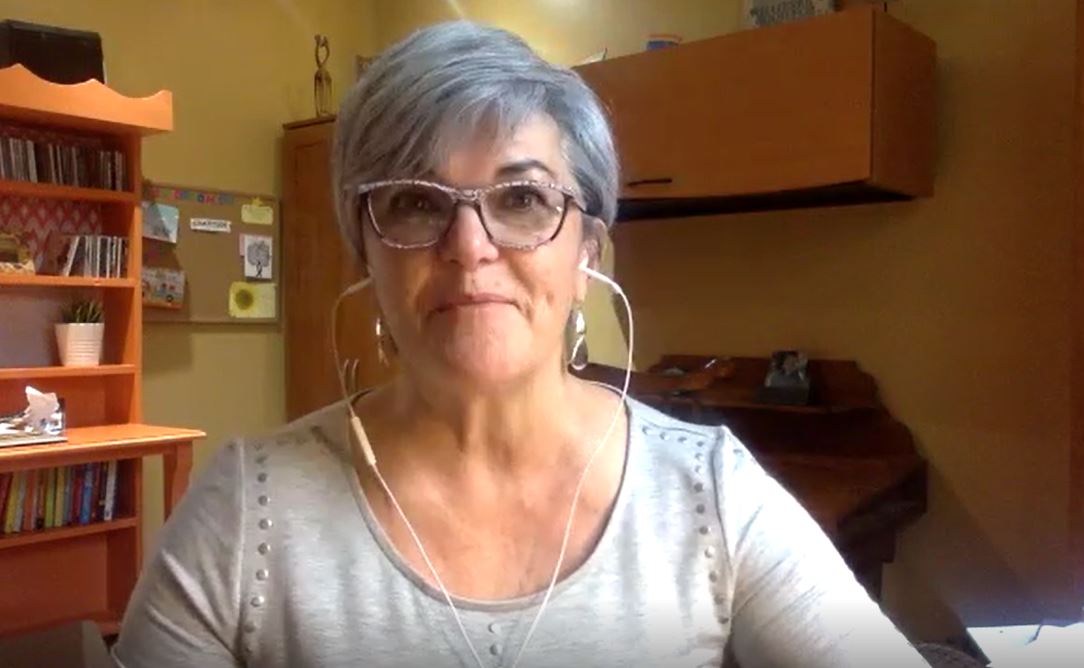Loneliness, stress, and desperation — those have been common feelings for Nova Scotia nursing home resident Vicky Levack throughout the COVID-19 pandemic, but especially during the Omicron wave.

“I’m extremely lonely, I’m desperate to get out of here,” she said.
Levack, a disability rights advocate, is just 31 years old, but she has been living at a nursing home since she was 21 due to her complex needs as a person with cerebral palsy.
She has been advocating tirelessly for the past 10 years to have the freedom to live in the community, where she can regain her freedom and autonomy. She found out in August she would be able to live in the community with the help of a support worker, but those plans have been delayed until February.
So Levack remains in her nursing home, where residents, under provincial COVID-19 restrictions, are only allowed to leave to attend a medical appointment or to go for a drive in a facility vehicle.

These “draconian” rules, she said, are exacerbated by the staff shortages in long-term care caused by workers self-isolating due to COVID-19, which is affecting resident care.
“It’s not even helping to keep us safe because we’re short-staffed,” said Levack.
Levack said she normally gets what she needs because she is self-sufficient, but she knows of other residents who are struggling, including one who recently received their seizure medication more than an hour late.
Staff are always flustered, she said, and morale is “currently in the toilet.”
“It makes me feel guilty to ask for things because I know they’re so busy. And they tell me, ‘Don’t feel guilty, honey,’ but how can you not?” said Levack.

Get weekly health news
“I myself have personally decided to go without things and not ask for things sometimes because they are so busy.”
She was clear that she did not blame nursing home workers, who are “overworked and underpaid.” But she said staffing and other issues in the province’s nursing homes were apparent even before the COVID-19 pandemic and said the provincial government has failed to act.
“(Premier Tim) Houston said he was going to fix the health-care system, and I’m just wondering when that’s due to start, because from my perspective, it’s getting worse, not better,” she said.
It’s unclear exactly how many long-term care and nursing home staff are in self-isolation, but the province has said “hundreds” of health-care workers are currently off work.
In a statement, Department of Health and Wellness spokesperson Kristen Lipscombe said the mental health and wellbeing of their long-term care residents “have been and continue to be at the forefront of all decisions made by this Government throughout the COVID-19 pandemic.”
“The Department of Seniors and Long-Term Care and Public Health continue to work very closely with all long-term facilities in the province to ensure any measures that are implemented for the health and safety of everyone also take into serious consideration their impacts on residents and their loved ones,” she said.
Lipscombe said facilities allow two designated visitors per resident, and staff members and recreation teams provide supports like access to iPads for virtual visits with other friends and family members who can’t visit.
She added that the province acknowledges the “toll” of many staff being off due to COVID-19 and others working long hours and extra shifts.
“We’re monitoring closely and there are contingency plans in place to address staffing shortages, including the recruitment of travelling nurses and engagement of employment agencies,” she said.
‘They deserve better’
Michele Lowe, the executive director of Nursing Homes of Nova Scotia Association, said the staff shortages are “having a very significant impact” in the sector.
She said she has heard from nursing home administrators who have as many as 20 staff off work due to self-isolation requirements.
“It means that baths are delayed, it means that some residents who are used to getting up at 8:30 in the morning may be laying there until 9:30 or 10 o’clock until someone can get there,” she said.
“They deserve better than that.”
Lowe said the province should look at reducing its 10-day isolation period to five for people who test negative to help address the staff shortages.
She noted that long-term care workers are eligible for booster shots and are well-versed in using personal protective equipment properly in order to reduce the spread.
“What we’re seeing in acute care is that clinics and surgeries are later postponed until that staffing workforce can be stabilized,” she said. “In long-term care, that’s not an option. It’s 24/7.”
As well, rapid COVID-19 testing has become “increasingly difficult” to come by, which makes it difficult for visitors and caregivers to get a test before they visit vulnerable residents.
“If we can’t get access to rapid testing and there’s a delay in PCR testing, then what’s the next logical step?” she said.
“Are we going to have to reduce our two designated caregivers down to one? Do we mandate a break and have no visitors in long-term care?”
Lowe said she was pleased to see some provincial movement in recruiting more workers to the long-term care sector, including eliminating tuition fees for continuing care assistants and improve working conditions for staff — though she noted those changes will take time.
“We’re headed in the right direction when it comes to that recruitment and those initiatives,” she said.
“We just somehow need to get through this Omicron and really balance the restrictions with the quality of life that residents deserve in long-term care.”
— with files from Amber Fryday









Comments
Want to discuss? Please read our Commenting Policy first.